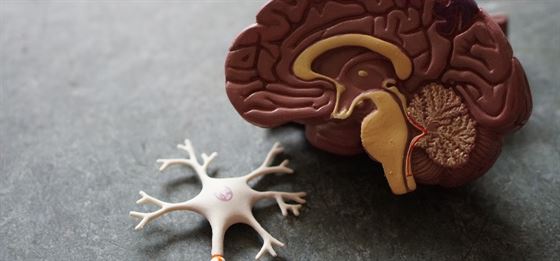
Supporting a loved one with a Mood Disorder

Mood disorders can be an overwhelming experience for the person experiencing them and their loved ones. Being supportive and understanding is crucial, but it can be difficult to know how to best help. Taking the time to educate yourself on mood disorders and what your loved one is going through can make a world of difference.
What Are Mood Disorders?
Mood disorders, also known as affective disorders, are mental health conditions that cause persistent changes in mood and emotion. Some common mood disorders include depression, bipolar disorder and anxiety disorders.
Who Is at Risk?
Mood disorders can affect people of all ages, but they are most commonly diagnosed in adults. Women are also twice as likely to be diagnosed with a mood disorder than men.
What Are the Symptoms?
The symptoms of mood disorders can vary depending on the specific condition, but they can generally be grouped into three categories:
- Changes in Mood: This may include feeling persistently sad or empty, feeling hopeless or helpless, having low energy or fatigue and losing interest in activities that used to bring joy.
- Changes in Behaviour: Withdrawing from friends and family, difficulty concentrating or making decisions, changes in sleep patterns and engaging in risky or self-destructive behaviours.
- Changes in Physical Functioning: You may observe changes in appetite, weight, or energy levels, nausea, headaches and digestive problems.
9 Tips to Support a Family Member Diagnosed With a Mood Disorder
Mood disorders can be difficult to manage, but there are things you can do to support your loved one. Here are seven tips:
- Understand Their Diagnosis
Mood disorders are often misunderstood. It is important to educate yourself about the facts and dispel the myths. This will break the stigma surrounding mood disorders and make you better equipped to understand your family member’s condition. Talk to their doctor, read books or articles about the condition and reach out to support groups for information and advice.
- Accept Your Loved One’s Limits
Mood disorders can be exhausting, and your loved one may not have the energy or ability to do everything they used to. It’s important to accept their limits and not expect them to do more than they are capable of.
- Encourage Them to Stick To Their Treatment Plan
Treatment for mood disorders can be effective, but your loved one needs to stick to their plan. This may include taking medication as prescribed, attending therapy sessions and making lifestyle changes. Encourage them to stay on track by reminding them of their appointments, encouraging them to make healthy choices and being there for them when they need support.
- Be Patient
Mood disorders can be unpredictable, and your loved one may have good days and bad days. They may cause your loved one to act in ways that are out of character. Try to be understanding and patient and remind yourself it’s not their fault.
- Communicate Openly
Talk to your family member about what they’re going through and let them know you are there for them. It’s important to offer support, but it’s also important to respect your loved one’s privacy and boundaries.
- Be Mindful of Your Wellbeing
Caring for someone with a mood disorder can be tough, but it's equally important to take care of yourself. Schedule time for your hobbies and interests and reach out to your support system when you need a break.
- Accompany Them to The Doctor
Seeing a doctor is important for someone with a mood disorder, but it can also be daunting. Offer to go with your loved one to their appointments and help them communicate better with the doctor.
- Positive Reinforcement
Positive reinforcement is a form of encouragement and can be used to help someone with a mood disorder. Try to focus on the things they are doing well and praise them when they make progress. This will \ boost their self-esteem and keep them motivated.
- Create a Low-Stress, Happy Environment
It’s important to create an environment conducive to recovery. This means minimizing stress, keeping things positive and providing emotional support.
A mood disorder can be difficult to deal with, but it’s important to remember you are not alone. With understanding, patience and love, you can help your loved ones to manage their condition and live a happy, fulfilled life.
Articles
Build your awareness and get inspired with our researched articles on how you can strengthen your well-being
Popular Topics
An OTP has been sent to the email address
provided.
Please check your Inbox and Spam folders.

What Would You Like to Speak with a Specialist About?
Mental Fitness Journey starts Now!
Chearful Connects you with Top-tier Qualified Wellness specialists for the Price of a cup of Coffee!

Next Steps
- A Client Team member will reach out to you to schedule a session with the most suitable specialist.
- You will receive an email with a 10% Discount Code* for your 1st session.
- We invite you to Explore the Platform & Sign Up today! *Upto a maximum of $10 discount on a session purchased




 3201 Read
3201 Read



.jpg)








.png)
.jpg)

.jpg)

.jpg)




.jpg)
































.jpg)

.jpg)






























